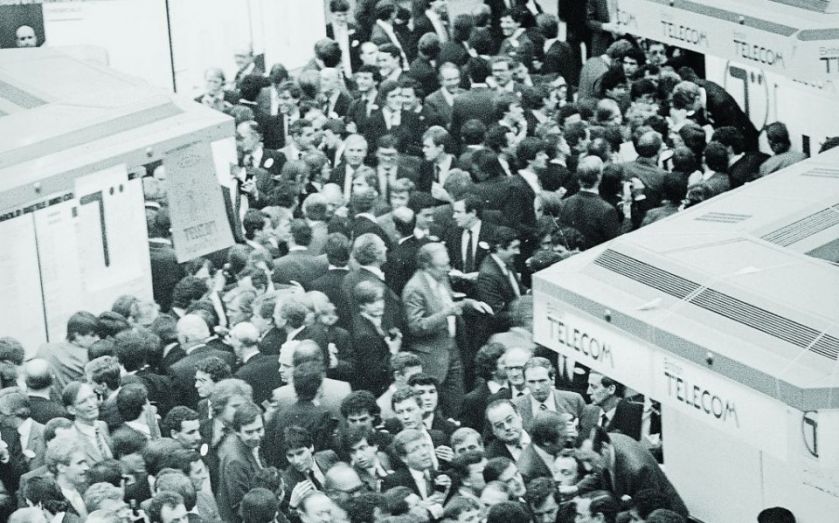Beware, Sid – Lloyds sale could be tricky

A big retail offering of Lloyds shares is on the cards.
Large-scale privatisation is back. David Cameron is promising a £4bn sale of Lloyds shares to retail customers, swapping one big government shareholder for thousands of individuals.
An instant comparison is with the 1980s. Giant firms like BT, BP and British Gas were taken out of state hands and subjected to competition, to the huge gain of customers and investors. The publicity campaign was just as memorable, with the “Tell Sid” adverts regularly invoked today.
But it is different with the big banks, Lloyds and RBS, and the sale plan does not promise to be anywhere near as significant this time.
They were never fully nationalised in the bailouts, and in Lloyds’ case a majority of shares have been in private hands for the entire period.
That makes the announcement that the government wants a £4bn retail share offering less of an obviously sensible decision.
The Prime Minister is keen to evoke that “Tell Sid” spirit and recall the popular capitalism of the Thatcher era. It fits with some of his other efforts to encourage investment, such as adding Aim shares to ISAs, and floating Royal Mail.
“It is part of creating a wider savings culture,” said Richard Hunter, head of equities at Hargreaves Lansdown, a stock broker which is likely to be selected to sell the shares, should the Conservatives implement the plan. “We’re getting to the stage where the younger generation will be responsible for their own retirement income. While pensions are not the sexiest of subjects, at least it is becoming more mainstream.”
But it does not make the same commercial sense for investors or the government. That is because Sid can already buy shares in Lloyds.
Indeed, if a retail buyer is keen on the Lloyds success story, they could – and should – have bought in two years ago, when the shares were valued at around one-third of their current price.
They can still buy now if they think the shares are a good investment.
The trickier part is working out what the government should do. A retail share sale does not immediately spring to mind, as it is more complex, slower and more expensive than selling to institutions.
In some ways, selling a lot of shares in a public company is easy – there is no need to guess the right price, because the stock is already traded.
That should limit the risk of selling too cheaply as happened in the Royal Mail float in 2013.
But it can still be tricky to sell a large stake without causing chaos in the market, as a flood of new supply drives down the share price.
One method is to announce a sale as markets close, get bankers to line up buyers overnight, then close the deal before markets reopen.
The government sold several chunks of Lloyds in that fashion, before switching to dribbling the stock out bit by bit, whenever the shares are trading at above the break-even price – at 73.6p. But the downside is that a constant stream of sales effectively puts a cap on the share price.
Between the two methods, £9bn of shares have been sold, amounting to around half the government’s stake.
The retail offer is trickier still, as it takes several days to arrange, and the flood of stock disrupts the market.
The clue to this announcement appears to be in the pricing – the government wants to offer shares at a five per cent discount.
It is a clear handout to those savers who have been hurt by years of low interest rates. But it is also risky – if share prices fall after the election, a five per cent discount could mean selling the shares below the break-even price.
That is not unimaginable – Vince Cable yesterday told Sky News the competition authorities could tell Lloyds to shrink, hitting its shares.
A costly handout to savers might win a few fans, but it will not help Cameron’s reputation for financial prudence, nor help the City ease the hatred directed at its bailouts.